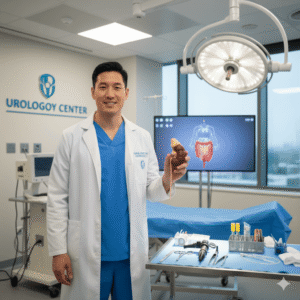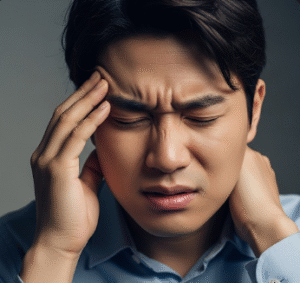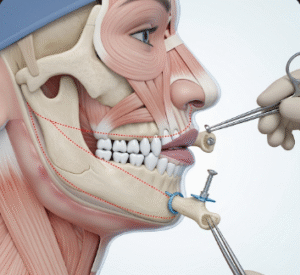Overview
Unpleasant thoughts are intrusive or distressing mental images, ideas, or memories that cause discomfort, anxiety, or negative emotions. Everyone experiences them occasionally, but persistent or recurrent unpleasant thoughts can interfere with daily functioning, relationships, and mental well-being.
➤ They may arise due to stress, trauma, mental health disorders, or lifestyle factors.
➤ Unpleasant thoughts can manifest as rumination, worry, or obsessive thinking.
➤ In Korea, mental health services, counseling, and integrative therapy programs offer structured approaches to manage and reduce intrusive thoughts.
Key Facts
► Definition: Distressing or unwanted mental content that evokes negative emotions.
► Prevalence: Common across all ages; chronic forms may indicate underlying mental health disorders.
► Associated symptoms: Anxiety, irritability, poor concentration, insomnia, and avoidance behavior.
► Risk factors: Stress, trauma, depression, anxiety disorders, obsessive-compulsive disorder (OCD), or sleep deprivation.
► Treatment in Korea: Psychotherapy, cognitive-behavioral therapy (CBT), mindfulness-based approaches, and pharmacotherapy when necessary.
What Are Unpleasant Thoughts?
Unpleasant thoughts are cognitive phenomena where the mind repeatedly focuses on distressing, unwanted, or intrusive ideas.
➔ They can be brief or persistent, sometimes triggered by specific situations or memories.
➔ Types include:
► Rumination – continuously thinking about past mistakes or negative experiences.
► Worry – anticipating future threats or problems excessively.
► Obsessions – recurrent, intrusive thoughts often linked with OCD.
➔ While occasional unpleasant thoughts are normal, chronic or intense forms can affect mental health and daily life, requiring intervention.
What Symptoms Are Related to Unpleasant Thoughts?
Unpleasant thoughts are often accompanied by psychological and physical symptoms:
→ Anxiety or panic triggered by recurrent thoughts.
→ Depressed mood or irritability, especially with persistent negative thinking.
→ Difficulty concentrating or making decisions due to intrusive thoughts.
→ Sleep disturbances, including insomnia or nightmares.
→ Physical tension, headaches, or gastrointestinal discomfort.
→ Avoidance behavior, such as avoiding triggers or situations.
→ Obsessive rituals or repetitive behaviors in OCD-related cases.
Causes / Possible Causes of Unpleasant Thoughts
Psychological Causes
➤ High levels of stress or chronic worry.
➤ Depression can increase focus on negative or self-critical thoughts.
➤ Trauma or post-traumatic stress disorder (PTSD) leading to flashbacks or intrusive memories.
Neurological and Biological Factors
➔ Imbalances in neurotransmitters like serotonin, dopamine, or norepinephrine may predispose to persistent negative thinking.
➔ Abnormal activity in brain regions such as the prefrontal cortex or amygdala can affect emotional regulation.
Behavioral and Lifestyle Factors
→ Lack of sleep or irregular sleep patterns intensifying intrusive thoughts.
→ Poor stress management or unhealthy coping strategies.
→ Excessive use of digital devices or exposure to distressing media content.
Mental Health Disorders
► Anxiety disorders, including generalized anxiety disorder (GAD).
► Obsessive-compulsive disorder (OCD), with persistent intrusive obsessions.
► Depression, often causing rumination on negative events or self-critical thoughts.
► Post-traumatic stress disorder (PTSD), leading to recurrent, distressing memories.
When Should I See My Doctor?
Consult a mental health professional if unpleasant thoughts:
➤ Are persistent or intrusive, interfering with daily life.
➤ Cause significant distress, anxiety, or depression.
➤ Lead to sleep problems, poor concentration, or avoidance behavior.
➤ Are associated with self-harm or suicidal thoughts.
➤ Do not improve despite lifestyle adjustments or stress management techniques.
Early evaluation allows for targeted interventions, preventing escalation into severe mental health disorders.
Care and Treatment
Self-Care and Lifestyle Strategies
► Practice mindfulness and meditation to observe thoughts without judgment.
► Maintain regular sleep, exercise, and balanced nutrition to improve brain function and resilience.
► Keep a thought diary to track triggers and recurring patterns.
► Engage in relaxation techniques, such as deep breathing or yoga.
► Limit exposure to stressors or negative media.
Psychotherapy and Behavioral Interventions
➔ Cognitive-behavioral therapy (CBT) helps identify and reframe negative thought patterns.
➔ Exposure and response prevention (ERP) for OCD-related intrusive thoughts.
➔ Trauma-focused therapy for PTSD-related intrusive memories.
➔ Mindfulness-based cognitive therapy (MBCT) for managing rumination and anxiety.
Pharmacological Treatments
→ Antidepressants, such as SSRIs or SNRIs, for persistent anxiety or depressive thoughts.
→ Anti-anxiety medications for short-term symptom relief in severe cases.
→ Medications are often combined with psychotherapy for best outcomes.
Treatment Options in Korea
Korean mental health services provide holistic and integrated care for managing unpleasant thoughts:
Diagnosis in Korea
➤ Comprehensive psychiatric evaluation to assess thought patterns, mood, and anxiety levels.
➤ Psychological testing to identify underlying OCD, depression, or anxiety disorders.
➤ Neuroimaging or lab tests when neurological or metabolic causes are suspected.
Non-Surgical Care
► Individual or group psychotherapy programs.
► Cognitive-behavioral therapy tailored to intrusive thoughts.
► Mindfulness-based interventions and relaxation training.
Advanced Interventions
➔ Neuromodulation techniques (e.g., transcranial magnetic stimulation) for treatment-resistant cases.
➔ Integration of psychiatric medication with therapy for chronic or severe symptoms.
➔ Digital mental health programs for ongoing monitoring and support.
Rehabilitation and Lifestyle Support
→ Psychoeducation and counseling for patients and families.
→ Structured stress management and lifestyle modification programs.
→ Continuous follow-up to prevent relapse and improve long-term mental resilience.
Korean mental health centers combine evidence-based therapy, advanced interventions, and patient-centered care, providing effective management for persistent unpleasant thoughts.













